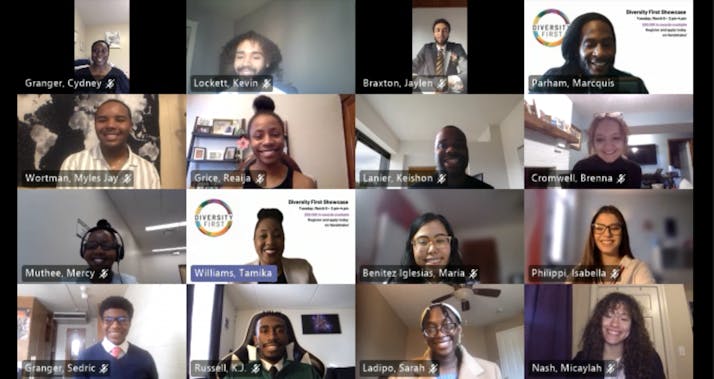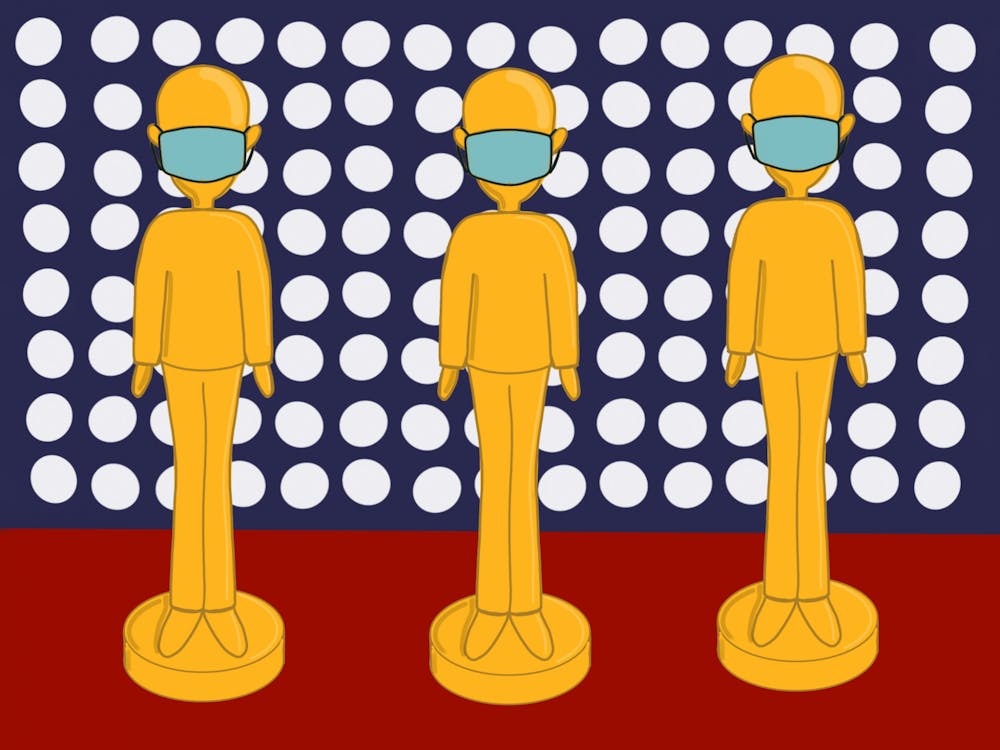While many awards ceremonies continue to be held in a virtual format, organizers have still found ways to recognize students’ work and make it a special experience for them.
Tamika Williams, assistant director for diversity and inclusion in the Career and Leadership Development Center, organized the Diversity First Showcase via Microsoft Teams. The event used to be an in-person luncheon, Williams said.
She also said they gave out a number of financial awards during the ceremony, and students were encouraged to use the chat feature to congratulate each other.
“That was probably the highlight of the whole event,” Williams said. “I got feedback from faculty and staff (and) feedback from employers that said they really took from seeing the energy of everybody celebrating each other’s accomplishments.”
Williams also said she created a PowerPoint to announce each winner. After the event, she sent pictures of the slides out to the winners so they could post them on sites like LinkedIn.
“They found out in the moment,” Williams said. “I got their name, a picture, put a fun fact and put a little GIF of a trophy on it…it was actually pretty cool because they had no idea.”

Having the event online allowed more companies to participate, Williams said. For example, USA Today was a company that had never been involved before this year.
“We want to continue those opportunities where we can get these companies who don’t necessarily want to travel, but we also realize in-person engagement is important,” Williams said. “So, in thinking about this event for next year, we took some strong takeaways from the virtual aspect.”
Williams said she wants to expand the event in the coming years, but doing it in a way that keeps participants safe.
“If I can do limited quantities in person and then still have a little bit of that virtual component, I wouldn’t mind doing that as well as some form of a hybrid,” Williams said. “Maybe three years from now, it’ll be full-blown in-person and we’ll be back to our normal thing. But I think for right now we just have to read the room.”
Compared to an in-person event, Williams said, there were more moving pieces she had to focus on. She said a presentation and breakout rooms were among the details she used to bring the event to life.
“I even created a digital booklet of all the companies’ DEI (Diversity, Equity and Inclusion) initiatives,” Williams said.
Brenna Cromwell, winner of the Leader on the Rise Award at the Diversity First Showcase, said she still enjoyed doing the event online.
“My whole entire college experience has been through computers, so it’s kind of nice to get to know new people, even in the strictest conditions,” Cromwell, a freshman studying interior architecture, said. “But this awards ceremony really brought me to new people that I would not have met had it not been for this showcase.”
She said it was nice to be able to see each of the panelists on the screen and it made it easier to identify what company they were from. Cromwell said that she loves having an online component because she has a blood clotting disorder, and spends a lot of time between doctors and can’t always make it to class.
“Being online makes it so much easier to just pop up and I can listen to my lectures through the phone rather than if I were to actually be on campus right now,” Cromwell said. “So, the awards ceremonies – for someone who can't attend but really desperately wants to meet and talk with people and enjoy the atmosphere – seeing people through the screen makes it so much easier for them to do that and it just cuts out that extra difficulty in the process.”
Andie Walla, assistant professor of instruction in the School of Media Arts and Studies, said she thinks her department is at an advantage when it comes to virtual award ceremonies. Walla said that streaming events are not new to them and it was easy to transition to a virtual format.
“We have not only the skills and the equipment to produce higher quality virtual awards ceremonies, but we don’t have to work with any outside vendors,” Walla said.
For the School of Media Arts and Studies awards ceremony for scholarship recipients, outstanding seniors and directors awards, Walla said it is usually a banquet but they were able to incorporate elements like showcasing student projects and musicians in the virtual format. Walla also said doing it virtually allows for more flexibility.
“I think it’s a little easier for us, and everyone can record their part when they have time,” Walla said. “For example, if you have a scheduling conflict when the actual event was held, it’s OK.”
She said Bob Boilen, creator and host of NPR’s All Songs Considered, was slated to speak last spring, when many events first started getting canceled. However, Walla said he was able to still give a keynote speech virtually to graduating seniors.
Walla also appreciates the live chat feature, and the fact that students can invite as many people to tune in to watch them receive an award rather than limiting it to a certain number of guests.
“When their name gets called for an award, they (viewers) can type in the chat, ‘Way to go so-and-so,’ emojis, whatever comes up,” Walla said. “I think that the live chat feature is a really great way to have interaction, too.”
Walla said that with people getting fatigued from online events, they are trying to keep it simple and special for students.
“We're trying to keep it simple and still be able to showcase student works and recognize our students and outstanding seniors, but we're definitely trying to keep it the same as last year and try not to reinvent the wheel,” Walla said.






